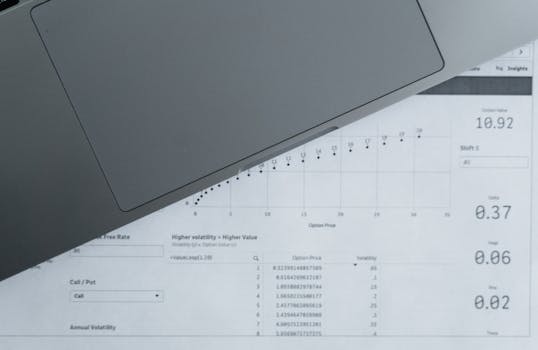
**
Europe's equity markets are currently enjoying a period of relative stability, fueled by hopes of a soft landing for the global economy and easing inflationary pressures. However, beneath the surface lurks a potential threat that may be significantly underestimated by investors: the escalating risks associated with global trade tariffs. While the immediate impact might be muted, the long-term consequences could trigger a significant market correction, impacting everything from European stock market indices like the FTSE 100 and DAX to individual company valuations and investor portfolios. This article delves into why this crucial risk factor appears to be overlooked and what investors should be considering.
The Current Market Sentiment: A False Sense of Security?
Current market optimism largely stems from recent positive economic indicators and central bank actions. However, this positive sentiment might be masking the growing uncertainty around international trade relations. The seemingly stable macroeconomic environment is overshadowing the simmering tensions that could easily boil over, leading to a renewed wave of protectionist policies and trade conflicts. This is particularly relevant for Europe, a region highly dependent on global trade for its economic prosperity.
Underestimating the Ripple Effect of Trade Tariffs
One reason for the apparent underestimation of trade tariff risks is the complexity of their ripple effects. The impact isn't just limited to direct tariffs on specific goods. The consequences spread far and wide, affecting:
- Supply Chains: Increased tariffs disrupt established supply chains, forcing companies to adjust their sourcing strategies, potentially leading to higher production costs and decreased competitiveness. This is particularly problematic for European manufacturers relying on imported components from countries facing tariffs.
- Inflationary Pressures: Tariffs directly increase the prices of imported goods, contributing to inflation and squeezing consumer spending. This can dampen economic growth and negatively impact corporate earnings, affecting stock valuations.
- Geopolitical Instability: Trade disputes often escalate into broader geopolitical tensions, creating uncertainty and deterring investments. This uncertainty can severely impact investor confidence, leading to capital flight and market volatility.
- Sectoral Impact: Specific sectors, such as automotive, technology, and agriculture, are particularly vulnerable to tariff increases due to their reliance on international trade. Investors focused on these sectors need to be especially vigilant.
The EU's Dependence on Global Trade: A Vulnerable Position
The European Union's economic model is built on a foundation of free trade and open markets. This high degree of interdependence makes the region particularly susceptible to disruptions caused by trade tariffs. The EU's significant reliance on exports makes it vulnerable to retaliatory tariffs imposed by other trading partners.
The Rise of Protectionism: A Growing Threat
The global political landscape is increasingly characterized by protectionist sentiments. Countries are prioritizing domestic industries, implementing tariffs to shield them from foreign competition. This trend poses a significant threat to European companies operating in international markets. The impact of protectionism goes beyond simple tariffs, including:
- Non-Tariff Barriers: These can include complex regulations, bureaucratic hurdles, and arbitrary trade restrictions, all of which increase the cost and complexity of international trade.
- Subsidies and Dumping: Other countries may use unfair trade practices such as subsidies and dumping to gain a competitive advantage, leading to an uneven playing field for European companies.
What Investors Should Be Watching: Key Indicators
Investors need to actively monitor several key indicators to gauge the evolving trade tariff risks:
- US-China Relations: The ongoing trade tensions between the US and China remain a major source of global economic uncertainty. Any escalation in this conflict will inevitably impact European markets.
- EU-UK Trade Relations: Post-Brexit trade negotiations continue to present challenges for both the EU and the UK. Further trade barriers between the two could negatively impact European businesses.
- Trade Policy Developments: Closely monitor announcements from various governments regarding new tariffs, trade agreements, and other trade-related policies. Any shift towards protectionism should raise concerns.
- Corporate Earnings Reports: Pay attention to company disclosures about the impact of tariffs on their supply chains, profitability, and future outlook.
Strategies for Mitigating Trade Tariff Risks
Investors can adopt several strategies to mitigate the potential impact of trade tariffs:
- Diversification: A well-diversified portfolio across different sectors and geographies can help reduce the impact of sector-specific tariff shocks.
- Geopolitical Analysis: Incorporate geopolitical analysis into investment decisions to understand the potential risks related to trade conflicts and international relations.
- Focus on Resilient Companies: Identify companies with robust supply chains, strong pricing power, and the ability to adapt to changing trade environments.
- Currency Hedging: Consider using currency hedging strategies to protect against potential currency fluctuations caused by trade disputes.
Conclusion: Don't Ignore the Elephant in the Room
While European equity markets seem buoyant, the risk of escalating trade tariffs shouldn't be ignored. The potential for significant long-term damage to European businesses and the broader economy is real. By closely monitoring key indicators, diversifying portfolios, and focusing on resilient companies, investors can better navigate the uncertain terrain of international trade relations and protect their investments from the looming threat of trade tariff shocks. Ignoring these risks could prove to be a costly mistake.




















